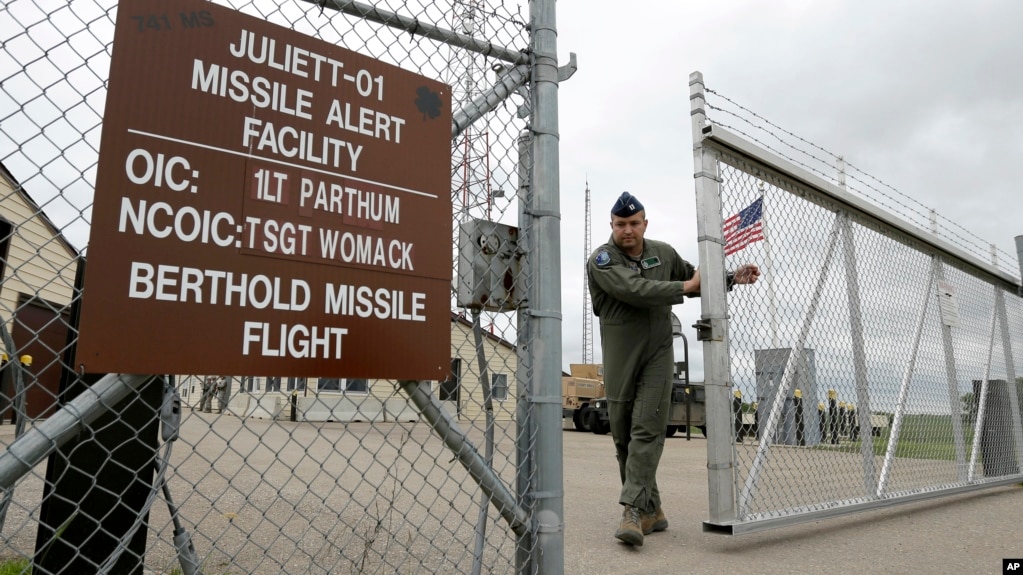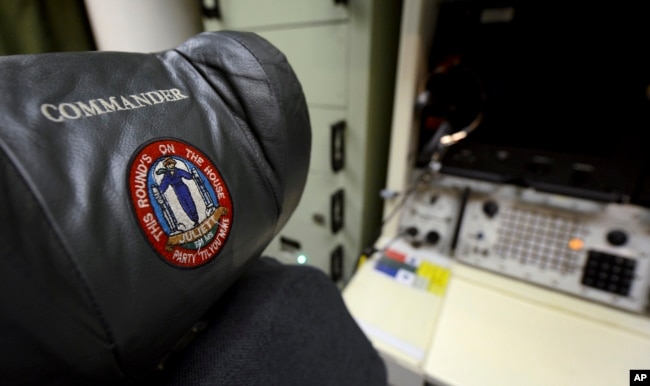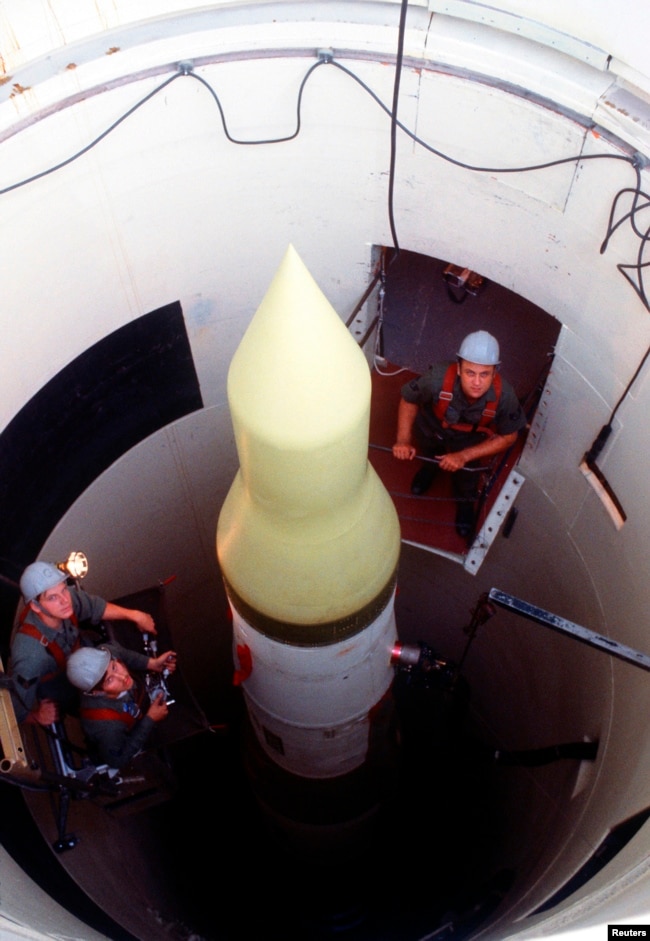US Military Investigates Whether Cancers Linked to Nuclear Base Work

Nine American military officers who worked many years ago at a nuclear missile base have been diagnosed with rare blood cancer. The Associated Press says military briefing documents suggest cancer might be linked to the officers’ service.
The cancer is non-Hodgkin lymphoma. One of the officers has died from the disease.
The documents were from a meeting led by a top member of the U.S. Space Force, Lieutenant Col. Daniel Sebeck. At the time, he suggested a possible connection between cancer and the time at the missile base.
Sebeck refused the AP’s request for comment about the briefing. He said the information was “pre-decisional.”
The soldiers were members of the United States Air Force. All worked at the Malmstrom Air Force base in the western state of Montana. Some worked as long ago as the 1990s.
At the time, Malmstrom had 150 nuclear missile launch structures called silos.

A chair in an underground nuclear missile control room. (AP Photo/Charlie Riedel, File)
The soldiers who worked there are known as missileers. They work at the base several days straight. They are there to carry out presidential orders concerning the missiles.
At the meeting, Sebeck called the number of military members with cancer “concerning.” He also said 455 former missileers are now in the Space Force, including four of those who have cancer.
A spokesperson for the U.S. Air Force told the Associated Press that medical leaders in the military are working to “understand more.”
Non-Hodgkin lymphoma strikes about 19 out of 100,000 people in the U.S. each year. That means that nine cancer cases out of only hundreds of former missileers is concerning. In addition, most people diagnosed with non-Hodgkin lymphoma are in their 60s. In the case of the military officers, most worked at the base in their 20s and were diagnosed in their 30s and 40s.

FILE - U.S. Air Force technicians perform an electrical check on an LGM-30F Minuteman III intercontinental ballistic missile in its silo at Whiteman Air Force Base, Missouri in this January 1, 1980 file photo. ( REUTERS/Tech. Sgt. Bob Wickley/USAF/Handout)
It is not the first time health concerns have come up for soldiers who worked at Malmstrom. In 2001, an Air Force health group investigated the base after 14 cases of cancer were reported among missileers who worked there. The report that followed said the base was safe and that “sometimes illnesses tend to occur by chance alone.”
The news of the new cancer concern comes at the same time the U.S. military is talking more openly about the hazards soldiers face while serving. For example, President Joe Biden signed a law last August that offered more health services to former soldiers who may have been in contact with dangerous substances in smoke.
It is possible 3.5 million people could have health problems from such smoke.
Part of the new law said soldiers with health problems would be offered healthcare without having to prove their sickness came from the time they served in the military.
When asked about the cancer cases among the soldiers who worked at the missile centers, the Air Force spokesperson said “we are heartbroken for all who have lost loved ones or are currently facing cancer of any kind.”
At the same time, however, Sebeck’s report noted that missileers should be “screened and tracked for the rest of their lives.”
Words in This Story
diagnose –v. to give a medical opinion about a sickness or health problem
launch –v. to put something into action or into the air, such as a rocket or missile
illness –n. a sickness or health problem
tend –v. used to describe something that often happens
occur –v. to happen
hazard –n. something dangerous
screen –v. to check for the presence of something
https://learningenglish.voanews.com/a/us-military-investigates-whether-cancers-linked-to-nuclear-base-work/6933369.html